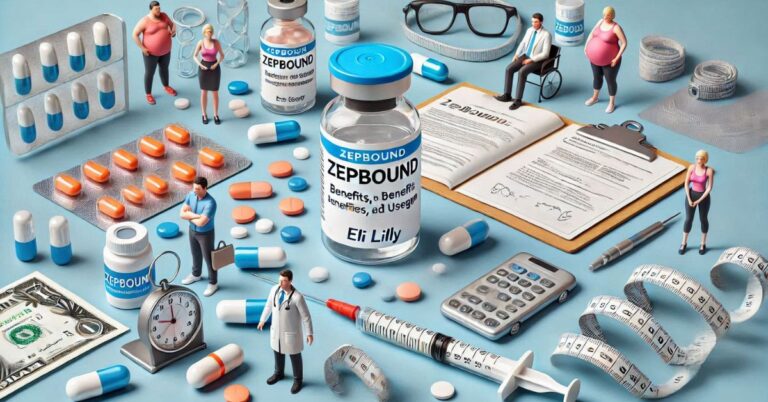Strengthening Resilience Against Depression Setbacks
Let’s be real—battling depression isn’t a straight road. It’s more like a winding path full of ups, downs, unexpected turns, and a few potholes along the way. And even when you feel like you’ve got a handle on things, a setback can throw you off balance. But here’s the good news: building resilience can help you bounce back faster and stronger. That’s exactly what we’re going to dive into today—how to strengthen your ability to recover when depression tries to pull you back in. This post is packed with depression resilience tips that are practical, encouraging, and grounded in real-life strategies.
What Does Resilience Really Mean in the Context of Depression?
Resilience doesn’t mean you won’t feel pain, sadness, or anxiety. It simply means you have the inner strength and resources to bounce back after emotional blows. It’s like mental muscle—you may be sore, but you’re not broken. And just like with any muscle, you can build it over time.
Tip 1: Accept That Setbacks Are Part of Healing
First things first: healing from depression isn’t linear. If you’re expecting a perfect upward trajectory, you’re setting yourself up for frustration. Setbacks don’t mean you’ve failed. They’re actually part of the process. Once you accept this truth, you’ll start reacting to setbacks with less self-blame and more compassion.
When a setback hits, remind yourself, “This doesn’t erase my progress. I’ve come a long way, and I can keep going.”
Tip 2: Create a Resilience Toolkit
Think of this as your go-to resource for when things start to feel heavy. Your toolkit might include:
Journaling or brain-dumping your thoughts
Calling a friend or family member
Listening to a specific playlist that lifts your mood
Going for a walk or doing light exercise
Practicing mindfulness or deep breathing exercises
Having this ready-to-go list makes it easier to reach for helpful coping mechanisms instead of falling into old, unhelpful habits.
Tip 3: Build a Routine (But Keep It Flexible)
Structure brings stability. A simple daily routine can be a powerful anchor during stormy emotional weather. It gives your mind and body something familiar to hold onto.
But—and this is important—don’t make your routine so rigid that you feel worse if you can’t stick to it. Flexibility is key. Maybe you planned to exercise for 30 minutes but only managed 10. That’s still a win.
Tip 4: Keep Track of the Good Days
When depression hits again, it’s easy to forget the better days. That’s why it helps to keep a “Good Day Journal.” Note what worked, what made you smile, or even the small wins (like getting out of bed or cooking a meal). Over time, you’ll create a reference that reminds you: “I’ve felt better before, and I can feel better again.”
Tip 5: Reduce Self-Judgment
One of the most toxic things depression brings with it is that nagging inner critic. You know the one: “You’re lazy,” “You’re weak,” “You’re never going to get better.” These thoughts are lies.
The next time your inner critic gets loud, ask yourself: Would I say this to a friend going through the same thing? If the answer is no, don’t say it to yourself either.
Tip 6: Stay Connected
Depression can make you want to isolate. But connection is one of the most healing forces there is. Staying in touch with people you trust—even if it’s just a simple message—can act as a lifeline during tough moments.
You don’t need a huge support system. One or two genuine connections can be more powerful than a hundred surface-level friendships.
Tip 7: Be Honest With Yourself (And Others)
There’s strength in vulnerability. It takes courage to say, “I’m struggling.” But being honest about your mental state helps others know how to support you. More importantly, it helps you stay grounded in reality, rather than pretending everything is fine.
If you’re not okay, it’s okay to say that out loud.
Tip 8: Focus on What You Can Control
When depression strikes, it often brings a wave of helplessness. While you can’t control everything, you can control your responses.
Start small. Make your bed. Drink water. Step outside for five minutes. These may seem insignificant, but they help you reclaim a sense of agency.
Tip 9: Limit Negative Inputs
Be mindful of what you’re feeding your mind. Social media, news, or even certain conversations can intensify feelings of hopelessness.
Unfollow accounts that make you feel worse. Mute notifications. Set boundaries. Create a digital space that supports your healing, not hinders it.
Tip 10: Celebrate Progress (Even If It Feels Small)
Every step forward counts. If you took a shower, answered a text, or got out of the house today, celebrate it. Progress during depression isn’t about big leaps; it’s about steady movement, however slow.
You’re showing up for yourself. That’s worth recognizing.
Conclusion: You’ve Got This (Even When It Feels Like You Don’t)
Resilience doesn’t mean being unshakable. It means you bend but don’t break. It’s about learning how to support yourself through the hard days and celebrate yourself on the good ones.
These depression resilience tips aren’t magic fixes, but they are building blocks. Over time, they help you recover faster, stay grounded longer, and navigate setbacks with a little more grace.
Keep going. You’re not alone.
Related: Major Depression Treatment: Effective Methods for Managing Symptoms
FAQs
What is the fastest way to build resilience against depression?
There’s no overnight fix, but starting with small daily habits like journaling, movement, and honest conversations can make a quick impact.
Can setbacks be a sign of worsening depression?
Sometimes. It’s important to differentiate between a temporary dip and a deeper spiral. Keep a journal to track patterns and don’t hesitate to reach out for help if you feel consistently overwhelmed.
How can I stay motivated when I keep having setbacks?
Motivation often follows action, not the other way around. Celebrate tiny wins, rely on your support system, and keep your routine flexible.
Are these tips a replacement for therapy or medication?
Not at all. These tips are complementary tools to use alongside professional support. Always check in with a mental health professional for a personalized plan.
Can you really be resilient if you still have bad days?
Absolutely. Resilience isn’t about avoiding bad days—it’s about how you respond to them. Every time you get back up, you’re strengthening your resilience.







